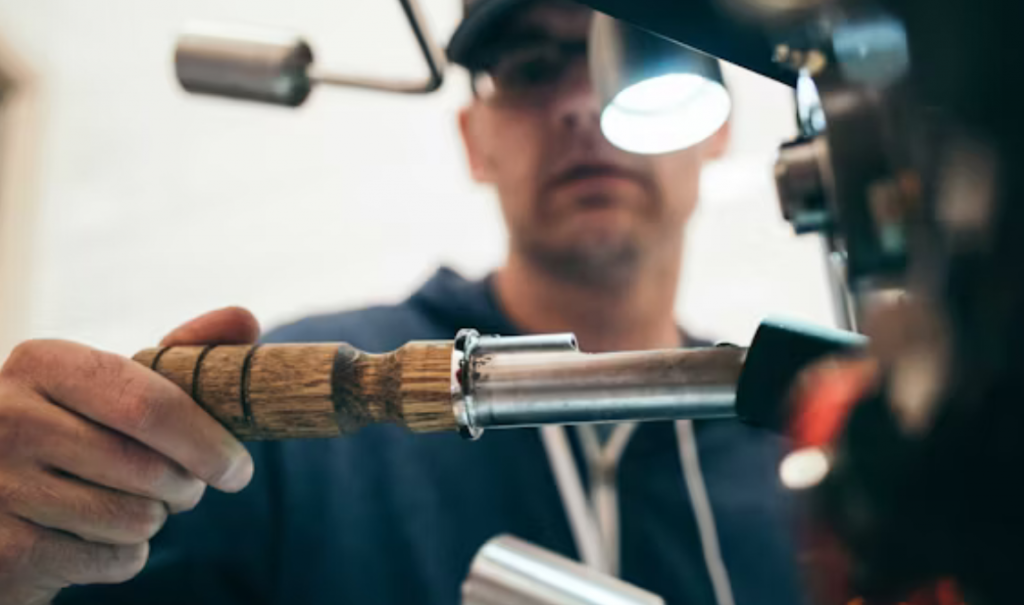In the realm of modern plumbing, technology has revolutionized the way systems operate. The integration of smart systems and Internet of Things (IoT) capabilities has redefined efficiency, monitoring, and maintenance in plumbing infrastructure. With the advent of advanced sensors, real-time data analytics, and remote control features, plumbing systems have become smarter and more responsive than ever before.
Technology has played a pivotal role in elevating the standards of modern plumbing practices by detecting leaks, optimizing water usage, and enhancing overall performance. The synergy between traditional craftsmanship and technological innovation underscores a new era of plumbing solutions tailored to meet the evolving needs of residential, commercial, and industrial sectors.
Introduction to Smart Plumbing Systems
Smart plumbing leverages IoT sensors, data analytics, and connectivity to transform traditional plumbing infrastructure. According to projections, the global plumbing market will reach $7.3 billion by 2027, largely fueled by smart plumbing systems, indicating strong industry growth.
Benefits of Smart Plumbing Systems
From enhanced efficiency to improved safety, these systems leverage technology to provide homeowners with a more streamlined and intelligent approach to water management.
Water Conservation
One of the primary benefits of smart plumbing systems is their ability to promote water conservation. These systems come equipped with advanced sensors and automation features that monitor water usage in real time. Users can receive alerts about potential leaks, and the system can automatically shut off the water supply in case of a detected anomaly. This not only prevents water wastage but also helps in the early detection of leaks, minimizing potential damage to the property.
Energy Efficiency
Smart plumbing systems contribute to energy efficiency by optimizing water heating processes. With the ability to schedule and control water heating remotely, homeowners can ensure that their water heaters operate only when necessary. Additionally, some systems can learn user habits and adjust heating schedules accordingly, further reducing energy consumption and utility bills.
Leak Detection and Prevention
Traditional plumbing issues such as leaks can lead to significant water damage and costly repairs. Smart plumbing systems integrate advanced leak detection mechanisms, including sensors and automatic shut-off valves. These features enable the system to identify and respond to leaks promptly, preventing extensive damage and potential mold growth. Early intervention not only saves money on repairs but also safeguards the structural integrity of the property.
Remote Monitoring and Control
The advent of smart technology allows homeowners to monitor and control their plumbing systems remotely through dedicated mobile apps. Whether adjusting water temperatures, checking for leaks, or turning off the water supply, users have real-time access to their plumbing infrastructure. This level of control not only enhances convenience but also provides peace of mind, especially when away from home for an extended period.
Data-Driven Insights
Smart plumbing systems generate valuable data on water usage patterns, potential issues, and system performance. Analyzing this data can offer insights into household habits, helping users make informed decisions to optimize water usage and reduce utility costs. Additionally, plumbing professionals can leverage this data to diagnose problems more accurately and provide targeted solutions.
Enhanced Home Security
Smart plumbing systems contribute to overall home security by offering features such as water flow monitoring and automatic shut-off in the event of suspicious activity. This is particularly beneficial in preventing unauthorized access to the property through plumbing entry points. By integrating with home security systems, smart plumbing enhances the overall safety and protection of the household.
Advancements in Smart Plumbing Technology
From smart sensors to AI-powered analytics, innovative technologies are enabling a new generation of intelligent plumbing.
Smart Leak Detection Systems
Minor drips often remain unnoticed over long periods, resulting in structural decay and mold growth issues. Smart plumbing dramatically improves leak detection capabilities. Ultrasonic sensors can detect flow rates down to a single drop (0.05mL) per second, monitoring leakage 24/7 without requiring homeowner input. By immediately alerting homeowners of any leakage events, smart sensors mitigate water damage remediation costs and improve loss prevention.
Remote Monitoring and Control
Web and mobile apps allow homeowners unprecedented visibility and control over plumbing systems. Instead of discovering issues after they occur, homeowners can proactively manage water usage, identify anomalies, and resolve minor faults automatically.
Integration of Artificial Intelligence (AI) in Plumbing
The integration of Artificial Intelligence (AI) in plumbing represents a significant advancement in the way water systems are managed and maintained. Through the integration of AI, plumbing systems can now detect and diagnose issues before they escalate, leading to enhanced efficiency, reduced costs, and increased sustainability.
One of the key benefits of AI in plumbing is its ability to analyze vast amounts of data collected by sensors and devices in real time. By leveraging machine learning algorithms, AI systems can identify patterns, predict potential failures, and optimize water usage. This proactive approach not only minimizes downtime but also helps prevent costly water damage by addressing issues before they become critical.
Moreover, AI-powered plumbing systems can adapt to usage patterns, adjust water flow rates, and even detect abnormalities such as leaks or unusual consumption behavior. As AI continues to evolve, its integration into plumbing will undoubtedly drive innovation, efficiency, and sustainability in the management of water resources.
Castle Rock CO: A Key Player in Smart Plumbing Implementation
In the vibrant city of Castle Rock, CO, plumbing professionals play a crucial role in implementing and maintaining smart plumbing systems. As the demand for advanced plumbing solutions grows, plumbers in Castle Rock are at the forefront of integrating these innovative technologies into residential, commercial, and industrial settings.
Smart plumbing systems, including those in Castle Rock, seamlessly integrate with existing infrastructure, requiring minimal retrofitting. The technology’s versatility allows plumbers in Castle Rock CO, to enhance water conservation, energy efficiency, and overall system performance for their clients. With smart plumbing, Castle Rock residents and business owners can enjoy cost savings, convenience, and peace of mind.
The Future of Smart Plumbing
As smart home ecosystems expand, connected plumbing systems will play an integral role in powering sustainable living.
Integration with Smart Home Platforms
With the increasing popularity of smart home platforms like Amazon Alexa and Google Home, it’s only a matter of time before plumbing systems become fully integrated into these ecosystems. Homeowners will be able to control their plumbing remotely through voice commands or smartphone apps, making it easier to monitor water usage and detect any issues.
Expansion of Remote Diagnostics and Servicing Capabilities
Smart plumbing systems will also offer remote diagnostics and servicing capabilities, allowing plumbers to identify and troubleshoot issues without having to physically be at the home. This not only saves time and money for both homeowners and plumbers, but it also reduces unnecessary travel and carbon emissions.
Frequently Asked Questions
Are smart plumbing systems compatible with existing infrastructure?
Yes, many smart plumbing devices can integrate with traditional piping and fixtures through easy installation. No significant retrofitting is required.
How secure are connected plumbing systems from hackers?
Smart plumbing utilizes end-to-end encryption, secure boot mechanisms, and other protocols to provide robust protection against unauthorized access or data leaks. However, maintaining strong WiFi router passwords remains important.
What return on investment (ROI) can smart plumbing provide?
From water savings and loss prevention to avoiding emergency repair costs, properly implemented smart plumbing can provide an ROI from 6 months to 3 years – with higher efficiency systems seeing the fastest payback.
Conclusion
The plumbing industry is being reinvented through game-changing technologies – from real-time monitoring capabilities to AI-based analytics and remote servicing functionalities. As smart ecosystems increasingly integrate with connected appliances, smart plumbing plays a pivotal role in enabling sustainable living. With the potential for significant cost savings and environmental conservation, it’s no surprise that more and more households are investing in smart plumbing solutions. So why wait? Upgrade your home or business today and join the growing movement towards a smarter, greener world.



